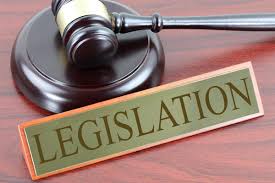The Government has fast tracked the Coronavirus Act 2020 which contains ‘emergency powers’ to enable public bodies to respond to the Covid-19 pandemic.
The Act has three main aims: to give further powers to the government to slow the spread of the virus; to reduce the resourcing and administrative burden on public bodies;
to limit the impact of potential staffing shortages on the delivery of public services.
Here is a summary page of What the Act says .
The Act includes significant changes to duties under the Care Act 2014 for the most critical period of the pandemic.The Care Act duty to meet eligible care and support needs has been replaced, for the duration of the emergency period, with a power to meet needs. This is underpinned by a duty to meet needs where failure to do so would breach an individual’s human rights (for example in relation to neglect).
During the emergency period there is no longer a duty to carry out formal assessments, including financial assessments, to allow the provision of urgent care to people without a full Care Act assessment and, therefore, to prioritise the provision of care and support.
This changes caused concern and calls for action among disabled people’s groups but the Government has countered that the Act does not remove the duty of care, and there is no change to the duties around safeguarding, assessing mental capacity, independent advocacy and Deprivation of Liberty safeguards. They add that changes will only come into force if pressures of demand and workforce illness during the pandemic mean that they are not able to fulfil normal duties under the Care Act.
Disability Rights UK has urged local authorities not to suspend Care Act rights saying “There is a real danger that moving to new untested ways of assessing, delivering and prioritising care will lead to disabled people with high care needs falling through the cracks, being alone and unsupported. We would ask directors of social care to consult with organisations supporting disabled people throughout the crisis, to gain information and understanding of the lived experience of disabled people and to develop and monitor strategies that support and protect us.”
You can download a template letter to enable you to write to directors of social care in your local authority here.
Campaigning organisation Disabled People Against Cuts has written to MPs expressing their concerns about the Act and its possible implications for adult social care.
Disabled People’s Organisation In Control has produced a webinar with disability rights lawyer Steve Broach of Monckton Chambers about how to access social care during the Coronavirus crisis. You can view the video on Youtube.





